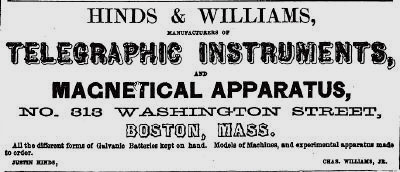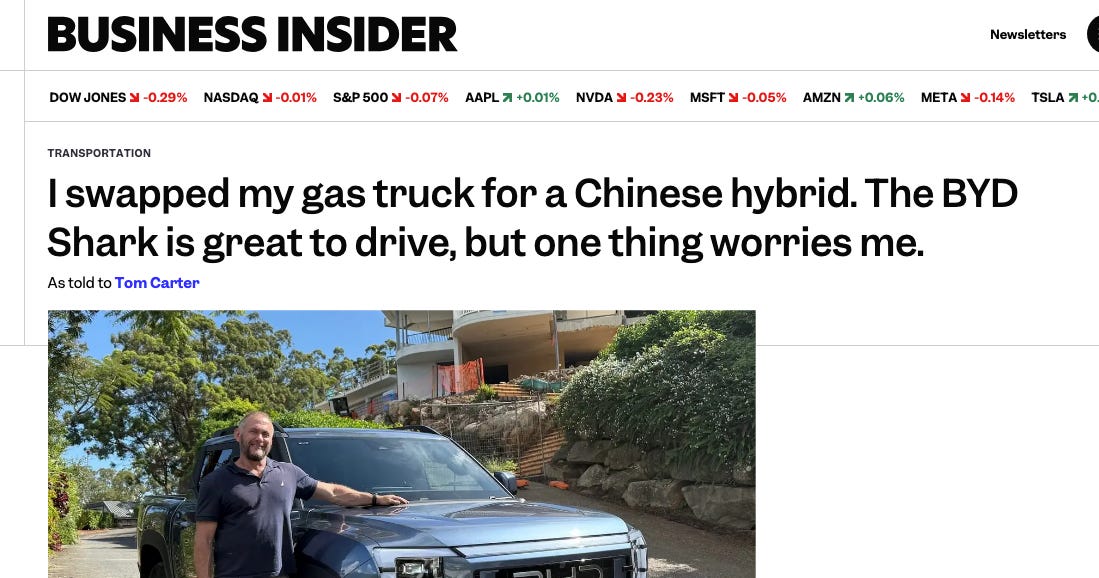Monopoly Round-Up: China Is Not Why America Is Sputtering
by Matt Stoller
Lots of important stuff happened last week. Administration officials claimed progress with China in ending the trade war, Trump previewed an executive order on drug pricing, there’s a mess of corruption at the Federal Reserve, and problems at Newark airport illustrated the terrifying costs of DOGE on the air traffic control system.
All of that is after [Stoller's] paywall.
First, I’m going to focus on China, because China has a monopoly over a lot of things we need, and breaking that monopoly is going to be very difficult, if not impossible. China is just better at making and inventing stuff now than America, and we’re falling further and further behind. That’s not inevitable, and it’s not inherent to anything about our two nations. China did not cause our current predicament, Wall Street did.
To understand why, we only have to look at America’s own history, in particular, a 19th century workshop in Boston on Court Street run by Charles Williams, an independent maker of telegraphic and telephone equipment.
Advertisement for their first location on Washington Street.
This shop was part of the world of machine tools in the 1870s that supplied the practical engineering skills and materials to innovate around telegraphy, electricity, and telephony. Williams helped many famous inventors, including Thomas Edison. Alexander Graham Bell, who was a speech therapist attending lectures at the Massachusetts Institute of Technology at the time, used Williams’ services; Bell needed the help in areas he was weak. This machine tooling hothouse spurred four innovations in the 1870s - the telephone, the phonograph, the electric power system, and the quadruplex (or broadband) telegraph, birthing modern telecommunications and the electric utility industry.
It’s hard to overstate how important these innovations were, but the idea of a single great man as an inventive genius was public relations, crafted at the time often for patent litigation. In truth, America’s vast productive capacity was built on skill with machine tools, which are the specialized tools that cut, bore or bend metal.
In the 20th century, it was America’s capacity to create factories that sparked the “arsenal of democracy,” and America led the world until the 1960s in machine tooling. We were a high productivity and high wage nation, and the basis was a fierce competitive drive to pull out costs in production as aggressively as possible, using our ability to wield machine tools creatively and cheaply.
Who leads the world in machine tools today? China, by a lot. Last week, Dave and I interviewed Simple Modern CEO Mike Beckham. Beckham, whose company makes steel drinkware, tried to re-shore production to the U.S., and he couldn’t. He told us that we just don’t have the machine tooling anymore, which includes both the physical tools and the skills to modify or manage them. It’s not impossible to do it, but it’s just not cost effective.
The costs of this skills gap is big and increasing. China’s auto industry is a case in point. It’s just better, because it has the machine tooling and battery ecosystem to allow for building. You can be an Alexander Graham Bell, without the skills to build an electric car, and find a ready set of firms to help. That’s how Xiaomi, a phone maker, became a great producer of luxury EVs in just a few years. They are so good that Ford CEO Jim Farley drove a Xiaomi SU7 for seven months to sample the competition, and didn’t want to give it up.
The one thing that concerned him is resale value. The Chinese trucks were just better.
It’s not just cars, of course. China has better drones, batteries, hypersonics, nuclear technology, and is set to overtake the U.S. in pharmaceuticals. It can also make enormous amounts of stuff we can’t, including nylon products, optical scanners, consumer robotics, electronics, all types of clothing, specialty chemicals, and, well, metal drinkware.
Why? It’s not like we’re a small country or full of stupid people. No, it’s the takeover of the economists and bankers. Simply put, modern American law is oriented towards ensuring very high returns on capital to benefit Wall Street and hinder the ability to make things. In America today, a pharmaceutical firm can take a bunch of risk and spend billions to try and invent a new pharmaceutical, or it can pay a few lawyers to engage in patent cheating to extend the life of its already profitable billion dollar plus drug. Which one is a better return on investment?
Similarly, a private equity firm can invest a hundred million dollars to build a steel plant and potentially earn a 7% profit starting in two years, or it can borrow a hundred million dollars and buy an existing company and sell that firm’s real estate immediately and lease it back to the company it just bought while shedding labor contracts in bankruptcy. Which one is a better return on investment?
Behind these kinds of investment incentives are laws, laws that make it easy to extend patents, laws that facilitate gambling with other people’s money, or laws that facilitate pools of capital to take over companies and break labor contracts. The only actual investment we see in real stuff is “blitz-scaling,” which is to say, a tech firm losing money to acquire so many customers so quickly that they become a monopoly with pricing power, like Uber or Amazon.
Americans don’t like this setup. Dave Dayen and I keep talking to people on Organized Money who love creating. But the business culture is attuned to laws that cause us not to deploy capital and hire people to make things. For instance, David Heinemeier Hansson, the founder of software company Basecamp, noted that he got his company off Amazon Web Services, saving them $2 million a year. And the response was widespread mockery - why try to save peanuts when he could take those resources and try to become a big monopoly instead?
That kind of attitude is pervasive in America. The model used to be that of Henry Ford, mass production and ruthless efficiency to create high quality cheap cars with low profit margins, underpinned by machine tooling. You’d get rich by deploying a lot of capital, selling a lot of units, and being ruthless about productive efficiency. Today, the model is to do something that doesn’t require a lot of investment, so software or advertising or finance, essentially leveraging someone else’s capital. To do something like make screws for a low margin, you can just go to China, which seeks lower returns on capital. Indeed, we’ve been leveraging China’s capital for a long time.
There are many downsides to our model, but one of them is that high profit margins without discipline ends up causing bloat. Procurement consultant Rich Ham described the dynamic in corporate America, which is wildly inefficient, masked by excessive and persistent profit margins.
All of these dynamics are a result of law. I’ve gone over this dynamic many times, the basic idea is that a lot of the policies we implement, like strong patent rights, financial deregulation, and low corporate tax rates, are designed to ensure very high profits on any dollar of invested capital. Just having skilled labor and machine tooling around doesn’t fit in that model; a shop like that of Charles Williams’ shop could not exist today, at least not in America.
Tomorrow, Treasury Secretary Scott Bessent will go on CNBC tomorrow at 7am to announce some sort of “deal” or “progress” with China. They’ll probably lower tariffs by some large but not overwhelming number, and China will offer some similar concessions. It won’t be a “deal” in any meaningful sense, just a lowering of trade frictions. Depending on the specifics, importers will try to bring huge amounts of stuff stuck in Chinese ports.
Trump will brag about what a great deal he’s cutting for America, how everyone’s going to make a lot of money, or something, that America will no longer be taken advantage of. As these events unfold, I want to offer this very obvious point. The idea that China is “screwing” America is sort of true, so too is the notion that China has its own extremely significant problems. But it’s also missing the point. We’re living in a mess we created, and one we can choose to start cleaning up any time we want.
And now, the monopoly round-up after the paywall, with a bunch of fun stories. No more cheating you at hotels as the FTC’s junk fee ban goes into effect, Trump puts forward a pharmaceutical executive order that I’m guessing is mostly nonsense, Apple’s head PR flack gets seriously embarrassed as her emails come out in court, and Meta gets busted for connecting millions of kids with ‘groomers.’ Ew.
No comments:
Post a Comment
One of the objects if this blog is to elevate civil discourse. Please do your part by presenting arguments rather than attacks or unfounded accusations.